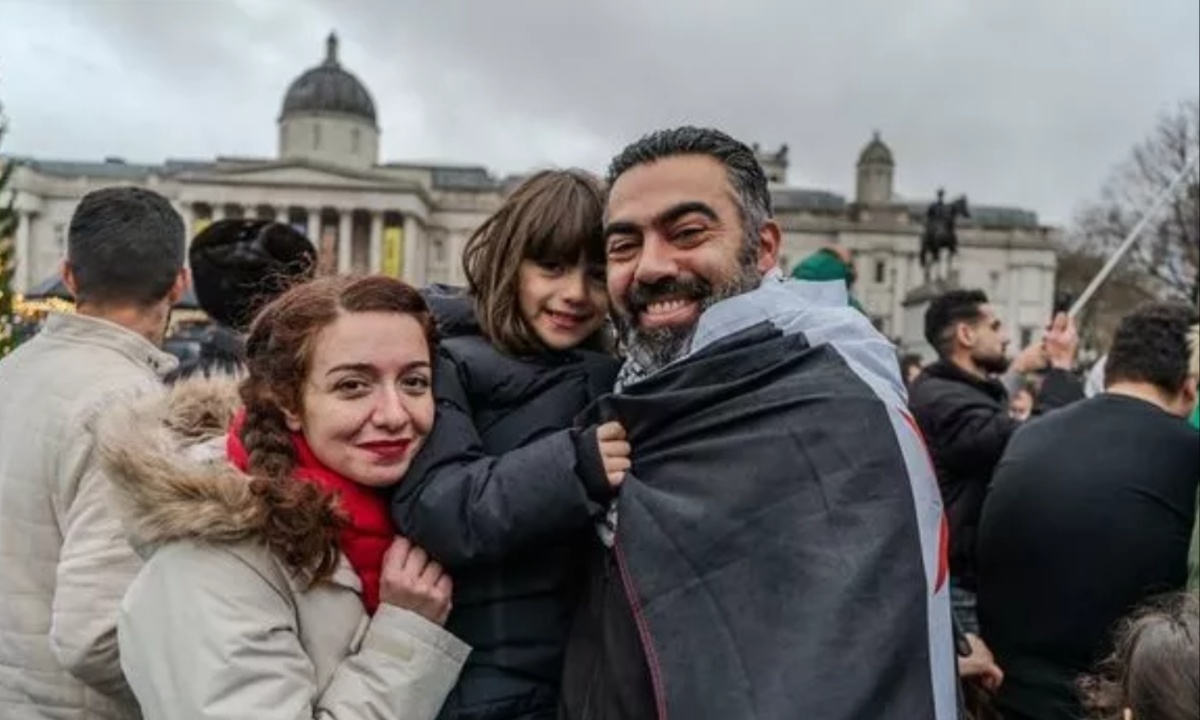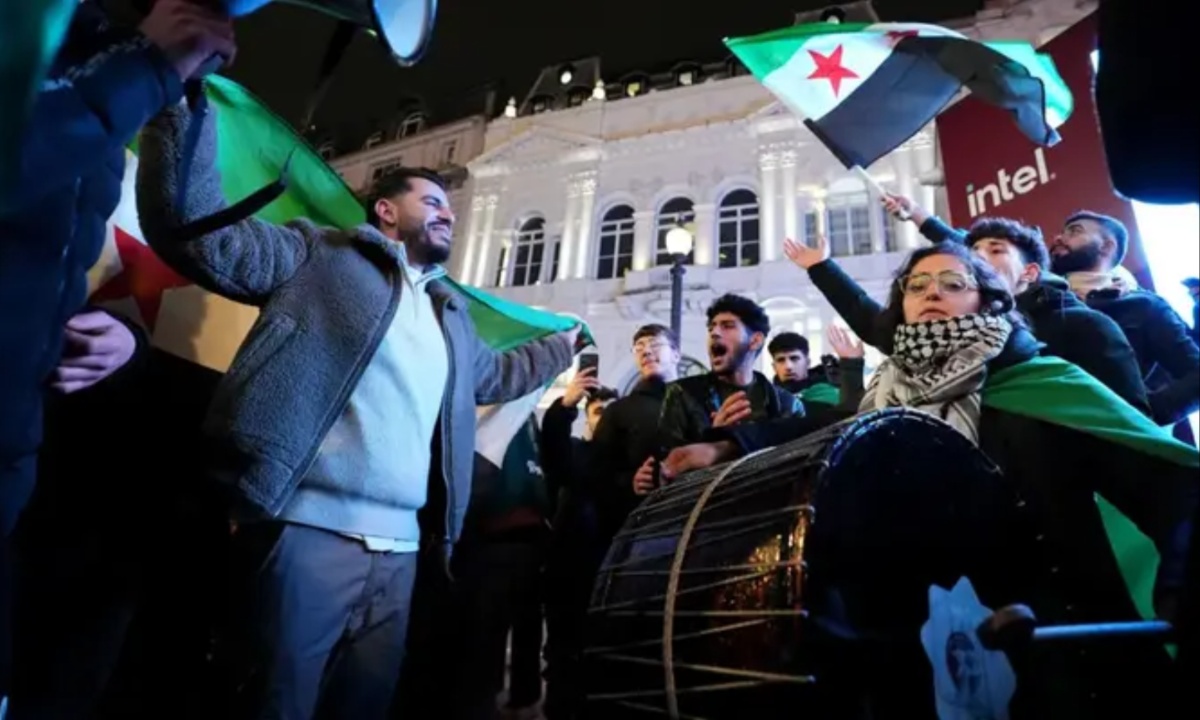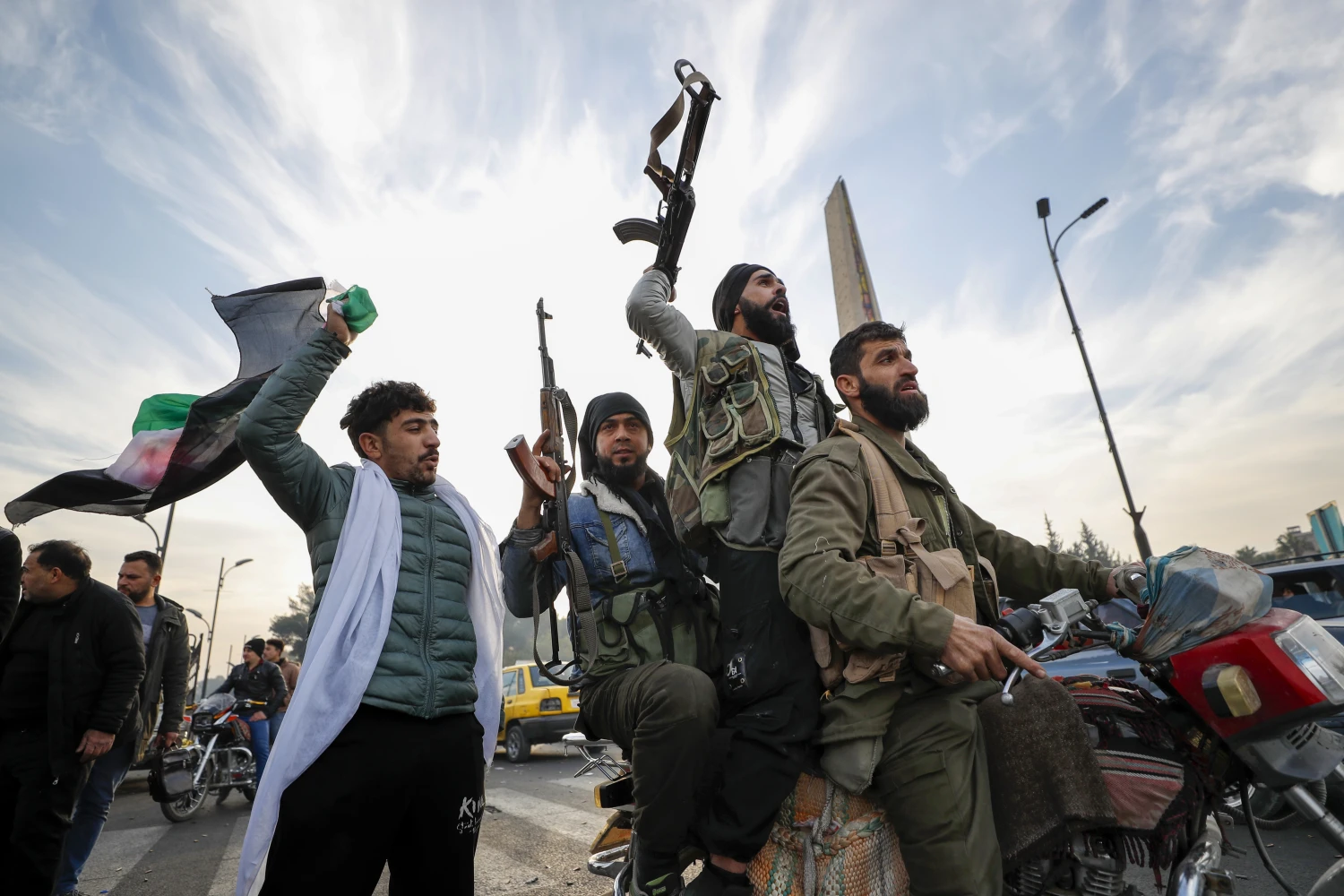An entire generation of Syrians has grown up under oppression, knowing nothing but the brutal rule of the Assad regime. The recent sudden wave of freedom that swept across the country, leaving many in shock and awe, brought a brief moment of joy and a glimmer of hope for a better future.
Damascus, a city with a history spanning nearly 5,000 years, has witnessed an unimaginable collapse over the past decade. The civil war, which has caused the deaths of over half a million Syrians and displaced 13 million others, has nearly destroyed the fabric of Syrian society. For those witnessing this collapse, this week’s events felt like an awakening from 50 years of dictatorship.
One of the most devastated areas near Damascus is the suburb of Ein Tarma. The once vibrant outskirts of the ancient city have been reduced to rubble. This was the response of Bashar al-Assad’s regime to the peaceful protests that began in 2011. Families who had once lived in relative peace, such as the Zidanes, were caught in the regime’s brutal crackdown.
The Zidane family spoke of their experience, recalling how their peaceful demand for freedom was met with indiscriminate bombing, leaving their homes in ruins. Despite returning to the area after the destruction, they were left without basic amenities like electricity and running water, living in dire conditions.

Syrians Experience Moment of Hope Amidst Assad’s Collapse, Navigating Uncertainty and the Road to Rebuilding
The Zidane family’s story is not unique. Across Syria, similar devastation can be seen, stretching across miles of ruined cities. The desperation for survival has led to acts of ingenuity, such as using broken bricks to create small farms for essential crops. For many, the idea that Assad’s regime has fallen is still hard to grasp. Mohammed Zidane expressed that it felt like waking from a bad dream, while his wife, Nihal, struggled to believe the news of Assad’s departure, still in shock from the sudden change.
The history of the Assad regime is one of cruelty and unrelenting repression. Hafez al-Assad, who ruled Syria from 1970, established a brutal police state that his son Bashar continued when he took power in 2000. The civil war that broke out in 2011 marked the beginning of an immense humanitarian crisis.
Over the years, millions were forced to flee the country, and the violence escalated with widespread attacks on civilians. International forces, including Russia and Iran, came to Assad’s aid, prolonging the conflict and resulting in war crimes, such as bombings of hospitals in rebel-held areas.
The brutality of Assad’s rule became particularly evident in the prison system, where thousands of political prisoners died from torture, starvation, and neglect. At Damascus Hospital, 35 bodies of prisoners, likely victims of the regime’s torture chambers, were identified.
These bodies, starved and weakened from malnutrition, symbolize the countless people who disappeared by the regime over the years. For families who have lost loved ones in this way, there has been little closure. Many mothers, like Fayza Hussein al-Ali, have spent years searching for their children, clinging to the hope that they might one day find their remains.
Forensic teams have been working to identify the victims, but for many, the pain is unbearable. Families continue to search for missing relatives, with some receiving only death certificates, but no bodies. Susan al-Tunji, whose son was arrested 12 years ago, expressed the anguish of never having a body to bury, leaving her in constant emotional torment. Others, like Taghreed al-Badawi, have lost sons and want nothing more than justice for the regime’s crimes, even calling for the execution of Bashar al-Assad for his role in the atrocities.
Amid these deep scars of the past, there is a glimmer of hope that Syria might be able to rebuild. In the streets of Damascus, the air is thick with a mixture of joy and uncertainty. Most of the city remains intact, a stronghold of Assad’s rule, but the future remains unclear.
For many Syrians, the fall of Assad’s regime is a moment of liberation, though they know that rebuilding the country will be a monumental task. Despite the hope, there is apprehension about what comes next, as Syria must now navigate a delicate balance between its different religious and ethnic communities.

Syrians Experience Moment of Hope Amidst Assad’s Collapse, Navigating Uncertainty and the Road to Rebuilding
The leader of the rebels, Ahmed al-Aharaa, has managed to maintain some order in the capital despite the recent upheaval. However, the political future remains uncertain. While there has been no sign of widespread violence or retaliation, Syrians are still uncertain about how they will be governed.
In the midst of the political vacuum, both Israel and the United States have continued to engage in military strikes in Syria, targeting Assad’s forces and remnants of ISIS. Meanwhile, Russia’s involvement in the conflict has dwindled, with their naval base now largely abandoned.
As the country grapples with the aftermath of the war, the reality is that the road to recovery is long and uncertain. In Ein Tarma, for instance, the Zidane family still resides among the ruins, their house a testament to the devastation they have endured.
Yet, even in this grim reality, they find a sense of renewal in the fall of Assad. Mohammed Zidane described it as a “new birth,” despite the physical toll that years of war have taken on him. Both he and his wife hold on to hope that the younger generation, inspired by their struggles, will lead Syria into a brighter future.
For Syrians like the Zidanes, rebuilding their lives is not just about physical structures but also about finding their loved ones who disappeared under the regime. Despite the overwhelming loss, there remains a powerful, enduring hope that freedom and justice might one day prevail in Syria. The hope for a better future, though tempered by experience, continues to survive in the hearts of many, as they strive for a Syria where freedom is not just a fleeting moment but a lasting reality.











































